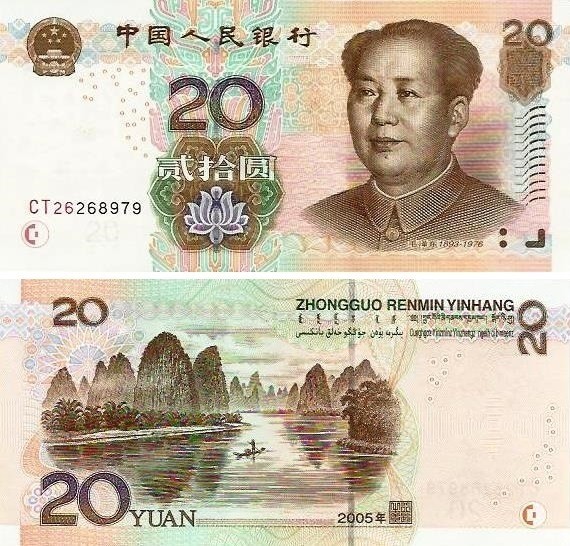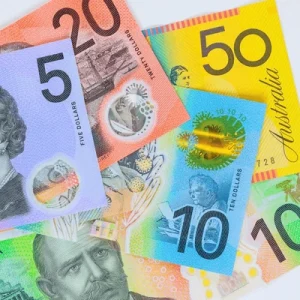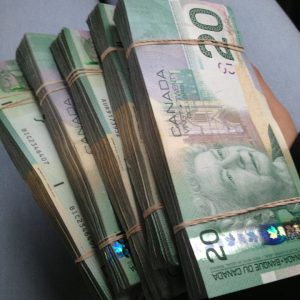Description
20 Chinese Yuan prop money
20 Chinese Yuan Prop Money for sale at passports-world.com. Are you a movie director or filmmaker looking for the perfect prop money to use in your next film? Look no further than 20 Chinese Yuan prop money! Not only is it authentic-looking, but it also adds a unique flare to your scenes. In this blog post, we will delve into everything you need to know about Chinese Yuan and how to get your hands on some realistic prop money for all of your creative needs. Let’s get started!
What is Chinese Yuan?/ 20 Chinese Yuan Prop Money
Chinese Yuan, also known as Renminbi (RMB), is the official currency of China. It’s represented by the symbol ¥ and is divided into 10 jiao or 100 fen. The Chinese government regulates the value of its currency through a managed floating exchange rate system.
Historically, Chinese Yuan has been in use since ancient times but was replaced with other currencies such as silver and copper during different periods. In modern times, it gained popularity after being introduced to replace previous currencies such as Gold yuan, Silver yuan and Copper yuan.
The current version of Chinese Yuan is widely used for both domestic transactions within China and international trade activities. Its acceptance has grown significantly in recent years due to its stable economic growth and global influence.
In terms of physical appearance, Chinese Yuan notes come in various denominations ranging from one to one-hundred renminbi notes featuring different famous landmarks like The Great Wall of China, Mao Zedong’s portrait among others.
How is Chinese Yuan/20 Chinese Yuan Prop Money used?
Chinese Yuan, also known as Renminbi (RMB), is the official currency of China. It’s widely used for domestic and international transactions in China. The Chinese government tightly controls the value of their currency to maintain stability in its economy.
Chinese Yuan can be used in a variety of ways, such as for shopping, dining, transportation and other daily expenses. Many merchants and vendors accept cash payments using Chinese Yuan notes or digital payment options like WeChat Pay and Alipay.
In addition to being a means of exchange for goods and services, Chinese Yuan can also be used for investments such as buying stocks or bonds. Investors can trade RMB on foreign exchange markets just like any other currency.
Internationally, more countries are starting to recognize RMB as an alternative reserve currency due to China’s growing economic influence. Therefore, it’s possible that we may see more global usage of this currency in the future.
While mainly used domestically within China itself at present time – with limited international acceptance outside certain regions – Chinese Yuan remains an important financial tool both locally and globally.
The Different Types of Chinese Yuan
When it comes to Chinese Yuan, there are a few different categories you should be aware of. The official currency of China is the Renminbi (RMB), which translates to “people’s money.” However, when people refer to Chinese Yuan, they usually mean the paper bills that come in different denominations.
The most common type of Chinese Yuan is the fifth series issued by the People’s Bank of China. This includes bills ranging from 1 yuan to 100 yuan and features portraits of famous figures in Chinese history such as Mao Zedong and Deng Xiaoping.
In addition to these standard notes, there are also commemorative editions that celebrate important events or anniversaries. These special edition notes often feature unique designs and can become collectors’ items for enthusiasts.
For those who prefer something more decorative or artistic, there are also souvenir banknotes available for purchase. These prop money pieces may not be legal tender but can serve as great conversation starters or props for films and photo shoots.
Regardless of what type you choose, keep in mind that counterfeit currency is a major issue with Chinese Yuan. Always make sure your bills come from legitimate sources and check them carefully before accepting them as payment.
Pros and Cons of Using Chinese Yuan
Using Chinese Yuan has its advantages and disadvantages, just like any other currency. One of the benefits of using Chinese Yuan is that it’s widely accepted in China, which makes transactions easy for locals and tourists alike. Additionally, the exchange rate between Chinese Yuan and other currencies can be favorable to some travelers.
However, one disadvantage of using Chinese Yuan is that it may not be as widely accepted outside of China compared to other major currencies like US dollars or euros. This could pose a challenge when traveling to countries where the use of Chinese currency is limited.
Another con worth considering is counterfeit money. Counterfeiters have become increasingly skilled at creating fake bills that look almost identical to real ones, so it’s important to only obtain money from reputable sources.
Another drawback relates to government restrictions on how much foreign currency an individual can withdraw or transfer out of China. This can limit access to funds for those who need it while overseas.
These pros and cons should be carefully weighed before deciding whether or not using Chinese Yuan is right for you depending on your travel plans and requirements.
How to Use
Using Chinese Yuan is quite easy, but it may still require some getting used to if you’re unfamiliar with the currency. Here are a few tips that will help make using Chinese Yuan more seamless.
Firstly, be sure to carry small bills and coins as larger denominations can be difficult to break. Most shops and vendors in China prefer cash payments over credit or debit cards, so having enough cash on hand is essential.
When paying for goods or services, simply hand over the appropriate amount of money directly to the vendor. Make sure you count your change before leaving as there have been reports of scams involving counterfeit notes.
It’s also important to note that haggling is commonplace when making purchases at markets and street stalls. Don’t hesitate to negotiate a fair price!
Keep in mind that tipping is not common practice in China unless you receive exceptional service. In fact, tipping could even be considered rude in some situations.
Conclusion
Chinese Yuan is a widely used currency that has different types and denominations. It serves as an essential tool for trade and commerce, making it a valuable asset to have in your possession. Whether you are looking to use it for personal or professional reasons, knowing where to get Chinese Yuan, how to use it effectively, and the pros and cons of using it will help you make informed decisions.
For those interested in purchasing prop money specifically, 20 Chinese Yuan prop money is available online through various vendors. Just be sure to do your research beforehand and only buy from reputable sources.
Learning about different currencies can expand our knowledge of global economics and provide insight into other cultures. So why not add some Chinese Yuan prop money as a unique addition to your collection or next film project?





Reviews
There are no reviews yet.